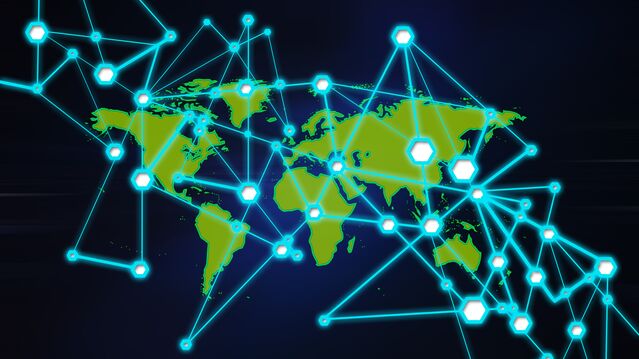Social Life
The Kindness of Strangers
Human Advantage #3—Our lives depend on how we are linked with others.
Posted November 20, 2020

For humans, the facts of life can be hard to swallow. If abandoned soon after birth, our offspring die unless found and cared for by others. If denied social contact and instruction, formal or by example, they will end up being human in form but not in talents. Whether we like it or not, we are thoroughly social animals. Yet many of us are thoroughly convinced that when it comes to being human, our personal pronouns are rightfully "me, myself, and I." As I have previously discussed, nothing could be further from the truth.

The Enlightenment fallacy
Although they may have disagreed quite audibly about the particulars, philosophers during the Enlightenment in the seventeenth and eighteenth centuries generally agreed on one thing: Once upon a time, our forerunners had been able to survive either as solitary forest creatures or in close-knit families just as Adam and Eve had been able to do in the Garden of Eden. Either way, they had no real need to associate with other people on Earth. They could do as they pleased, come and go as they pleased, and could care not a whit about the welfare or survival of others of their kind.

It was only later in human history — so the argument ran — that such personal freedoms had to be compromised by practical needs and realities. However, even then, the perceived self-centeredness of being human was taken for granted. Although the most celebrated philosophers writing about human nature before the American Revolution may now be Thomas Hobbes, John Locke, and Jean-Jacques Rousseau, the lesser-known savant Samuel von Pufendorf was eloquent (and long-winded) in describing what he saw as basic human nature. Like the others just mentioned, he assumed that regardless of how kindly or beastly we all are inherently down deep inside, human social life is fashioned to a large degree, and reasonably so, on rational and entirely justifiable self-interest.
The friendship hypothesis
Much of the logical foundations of modern social conservationism and philosophical libertarianism is in keeping with such Enlightenment ideas. As the philosophers Eric Mack and Gerald Gaus at Tulane University have summed up the libertarian view of society: “Each individual’s life, well-being or preference satisfaction is thought of as having supreme importance in and of itself, not merely in so far as it contributes to social life, well-being, or preference satisfaction.”
However, as I have discussed at length elsewhere, our evolved ability as human beings to make friends even with strangers is a defining characteristic of our species, an evolved human trait marking us apart from most other species on earth just as surely as the other diagnostic traits often singled out as being characteristic of our kind: walking upright on two legs, having opposable thumbs and a prominent chin, and possessing the powers of both speech and complex abstract reasoning.
Our friendships by their very nature link us with one another in ways that lead to astonishingly far-reaching social networks capable of transmitting vitally useful information, mobilizing people to action, and in other ways, too, buffering us, our families, and our communities against the trials and tribulations of life. Even the most sedentary human communities have always had ways to safely initiate, cultivate, and maintain social ties beyond their immediate horizons and the familiar constraints of their daily lives.
People have also always found seemingly practical reasons, as well as socially sanctioned excuses, for engaging in more distant social relationships beyond the confines of their hamlet or village community — not only to find suitable marriage partners, but to cultivate new allies, comrades, and procurers of goods & services, and for all the other countless reasons we need others in our lives.

The reality of our social networks
Thanks to cell phones, computers, and online social media services, the words network and networking are familiar to many today. So, too, at least in the academic world, is the phrase social network analysis (SNA).
The basic premise of the scholarly study of networks is that while we can think about things and people as if they exist all on their own and apart from everything else on Earth and, indeed, in the universe, in reality, things and people exist as such because they are connected and interdependent.
I will have more to say about social networks and the science of network analysis in later posts. Here, I want to end this commentary with this closing thought. Modern research in many of the sciences that are seemingly about quite different things — for instance, in sociology, psychology, neuroscience, and anthropology — is showing us that our world does not revolve around ourselves as individuals, contrary to Enlightenment thinking and more recent claims that we are inherently self-centered, even quite selfish, creatures. Instead, what we are like as individuals critically depends on how we are linked socially and emotionally with others in relational networks reaching far and wide.
This is why I like to say our ability as individuals to initiate, cultivate, and nurture social ties with others of our kind is the third of the great advantages of being human.
As I like to say to my students while pointing toward a blank wall: Can't you see what is written up there for all to see?

Next up — Should You Worry About How Delusional You Are?
References
Mack, Eric and Gerald F. Gaus (2004). Classical liberalism and libertarianism: The liberty tradition, pages 115–130. In Handbook of Political Theory, Gerald F. Gaus and Chandran Kukathas, eds. London: Sage Publications, page 116.




